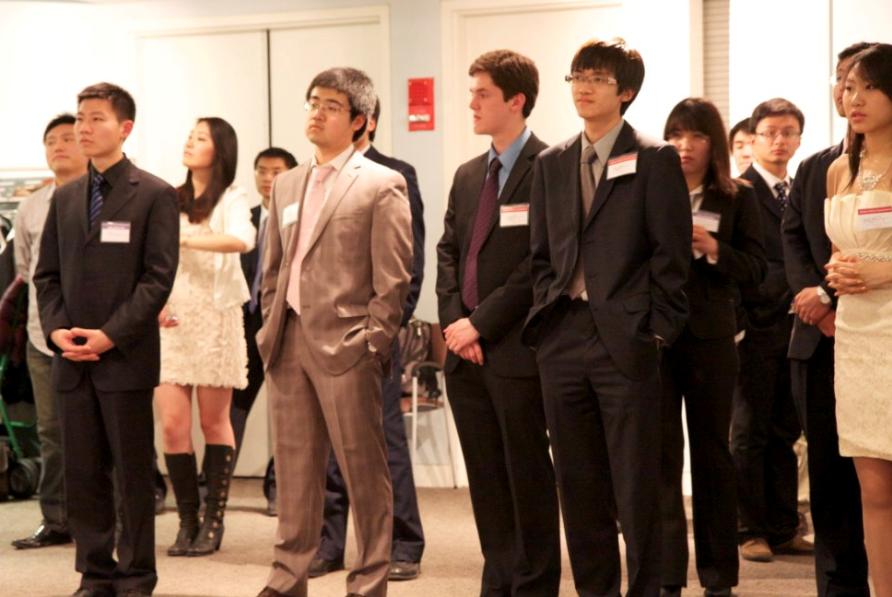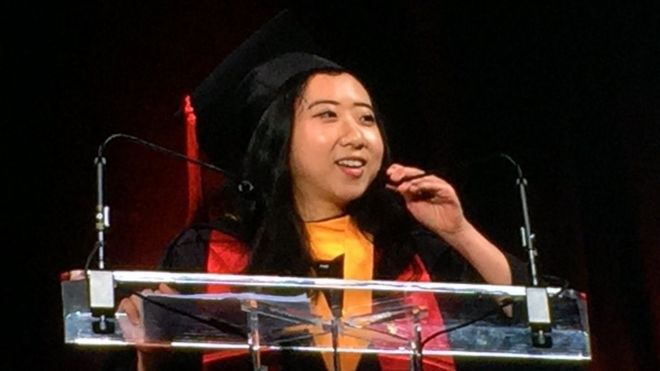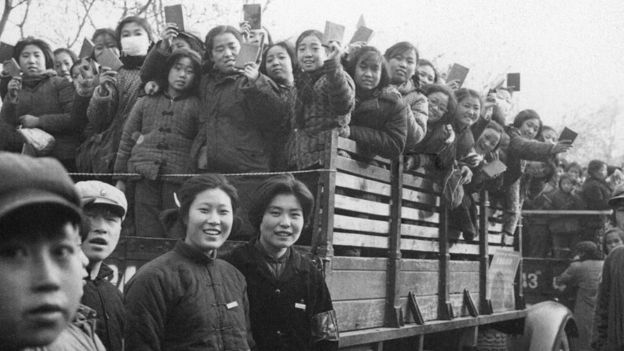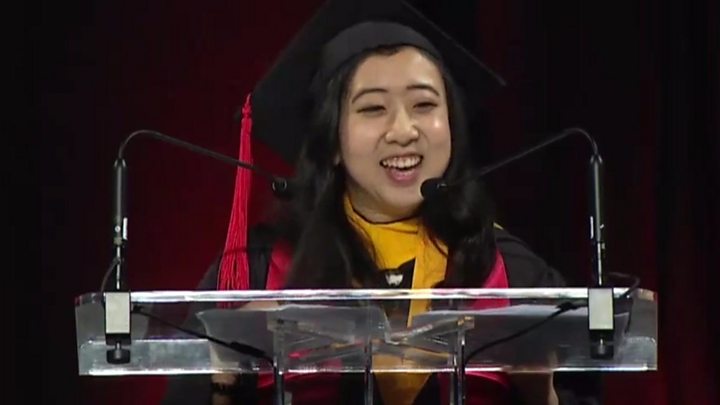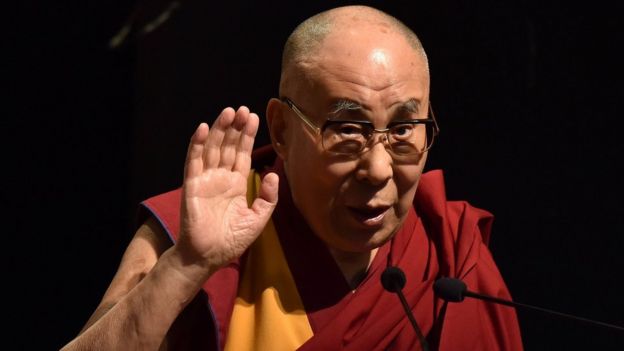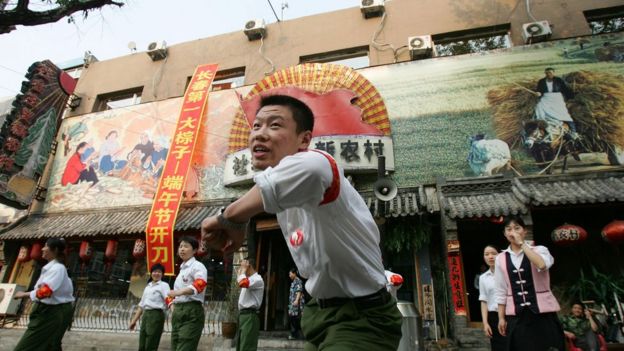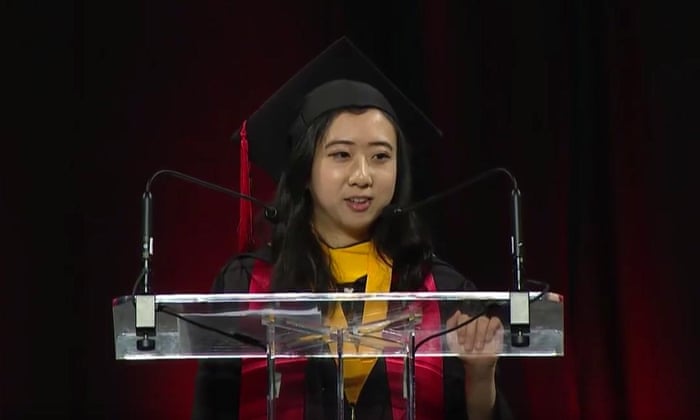By Elizabeth Redden
Concerns about Chinese government interference in American higher education seem to have become ubiquitous over the past year.
Lawmakers have lambasted universities for hosting Confucius Institutes, outposts for Chinese Communist Party propaganda or intelligence collection, and their complaints have prompted several of the institutes to close.
Congressional committees have held hearings about Chinese espionage efforts to infiltrate U.S. higher education.
Lawmakers have lambasted universities for hosting Confucius Institutes, outposts for Chinese Communist Party propaganda or intelligence collection, and their complaints have prompted several of the institutes to close.
Congressional committees have held hearings about Chinese espionage efforts to infiltrate U.S. higher education.
The Trump administration in June moved to restrict the duration of visas for Chinese graduate students studying certain sensitive fields.
Chinese student-spies
President Trump himself told a group of CEOs in August that almost every student from China in the U.S. is a spy.
Western scholarly publishers have blocked access to journal articles within mainland China to comply with government censors.
Western scholarly publishers have blocked access to journal articles within mainland China to comply with government censors.
And two new reports -- one a scholarly paper based on a survey, the other journalistic-- found that self-censorship is a widespread problem in the China studies field, though the reasons cited for this vary.
It’s in this context that the Woodrow Wilson Center for International Scholars released its report “A Preliminary Study of PRC Political Influence and Interference Activities in American Higher Education” (throughout the report the author uses the acronym for the People's Republic of China in favor of the adjective "Chinese").
It’s in this context that the Woodrow Wilson Center for International Scholars released its report “A Preliminary Study of PRC Political Influence and Interference Activities in American Higher Education” (throughout the report the author uses the acronym for the People's Republic of China in favor of the adjective "Chinese").
The study, which is based largely on interviews of more than 180 people, including more than 100 professors, documents alleged attempts to infringe on academic freedom at U.S. universities on the part of both Chinese embassy officials and individual Chinese students over the past two decades.
The study, authored by Anastasya Lloyd-Damnjanovic, a Schwarzman Associate at the Wilson Center for 2017-18, concludes that "over the past two decades, PRC diplomats stationed in the United States have infringed on the academic freedom of American university faculty, students, administrators, and staff by: complaining to universities about invited speakers and events; pressuring and/or offering inducements to faculty whose work involves content deemed sensitive by the PRC authorities … and retaliating against American universities’ cooperative initiatives with PRC partner institutions."
The study, authored by Anastasya Lloyd-Damnjanovic, a Schwarzman Associate at the Wilson Center for 2017-18, concludes that "over the past two decades, PRC diplomats stationed in the United States have infringed on the academic freedom of American university faculty, students, administrators, and staff by: complaining to universities about invited speakers and events; pressuring and/or offering inducements to faculty whose work involves content deemed sensitive by the PRC authorities … and retaliating against American universities’ cooperative initiatives with PRC partner institutions."
Chinese students, meanwhile, have in various cases infringed on academic freedom by “demanding the removal of research, promotional and decorative materials involving sensitive content from university spaces”; “demanding faculty alter their language or teaching materials involving sensitive content on political rather than evidence-based grounds”; “interrupting and heckling other members of the university community who engage in critical discussion of China”; and “pressuring universities to cancel academic activities involving sensitive content.”
In addition, the report documents cases in which Chinese students have “acted in ways that concerned or intimidated faculty, staff, and other students at American universities,” such as by “monitoring people and activities on campus involving sensitive content”; “probing faculty for information in a suspicious manner”; and “engaging in intimidation, abusive conduct, or harassment of other members of the university community.”
The highly sensitive nature of the subject comes across in Lloyd-Damnjanovic’s methodology section, in which she writes that many potential respondents did not return her emails, or sent back what she described as "curt remarks alleging that the premise of the study was political, alarmist, or racist."
To such responses Lloyd-Damnjanovic countered, “It is essential that studies of PRC influence be conducted in an objective, balanced and responsible fashion. Broad brushes, generalizations and policy in the absence of a substantial empirical foundation are problematic. But to dismiss concerns about PRC influence and interference without even considering whether there is evidence is tantamount to burying one’s head in the sand.”
The Chinese embassy in Washington condemned the report's conclusions Monday, saying, "This allegation of the report you mentioned is totally groundless, full of prejudice, discrimination and hostility."
The following are a few of the specific cases and issues highlighted in the Wilson Center report.
In addition, the report documents cases in which Chinese students have “acted in ways that concerned or intimidated faculty, staff, and other students at American universities,” such as by “monitoring people and activities on campus involving sensitive content”; “probing faculty for information in a suspicious manner”; and “engaging in intimidation, abusive conduct, or harassment of other members of the university community.”
The highly sensitive nature of the subject comes across in Lloyd-Damnjanovic’s methodology section, in which she writes that many potential respondents did not return her emails, or sent back what she described as "curt remarks alleging that the premise of the study was political, alarmist, or racist."
To such responses Lloyd-Damnjanovic countered, “It is essential that studies of PRC influence be conducted in an objective, balanced and responsible fashion. Broad brushes, generalizations and policy in the absence of a substantial empirical foundation are problematic. But to dismiss concerns about PRC influence and interference without even considering whether there is evidence is tantamount to burying one’s head in the sand.”
The Chinese embassy in Washington condemned the report's conclusions Monday, saying, "This allegation of the report you mentioned is totally groundless, full of prejudice, discrimination and hostility."
The following are a few of the specific cases and issues highlighted in the Wilson Center report.
Hosting of speakers and events.
The report states that "PRC diplomats have since at least the early 1990s made official expressions of displeasure to American universities for hosting certain speakers and events."
In the cases discussed, which mostly happened at major research universities, Lloyd-Damnjanovic wrote that these requests were seen as "propagandistic" and duly if politely rebuffed.
But she raised the question of whether smaller institutions more reliant on Chinese students and cooperative initiatives with Chinese universities for revenue would disregard the complaints of embassy officials so easily.
Retaliation and the Dalai Lama.
The report describes retaliation against universities that play host to speakers the Chinese government doesn’t like.
Richard Daly, who formerly headed the Maryland China Initiative at the University of Maryland and now works at the Wilson Center -- he wrote the foreword to the report -- said that groups of municipal- and provincial-level PRC officials stopped attending the university’s executive training programs for a period of time after the Dalai Lama gave a speech at Maryland's College Park campus in 2013.
The report also says that executive training programs organized through Maryland’s Office of China Affairs -- a successor office to the Maryland China Initiative -- have “experienced disruptions” since 2017 when a Chinese student, Yang Shuping, gave a controversial commencement speech praising the “fresh air of free speech” in the U.S.
The report also says that executive training programs organized through Maryland’s Office of China Affairs -- a successor office to the Maryland China Initiative -- have “experienced disruptions” since 2017 when a Chinese student, Yang Shuping, gave a controversial commencement speech praising the “fresh air of free speech” in the U.S.
Maryland's media relations office declined to comment.
The report further describes retaliation against the University of California, San Diego, after it invited the Dalai Lama to give a commencement speech in 2017.
The report further describes retaliation against the University of California, San Diego, after it invited the Dalai Lama to give a commencement speech in 2017.
The report cites faculty members who say they heard from their colleagues at Chinese partner institutions that universities were ordered by a government entity -- believed to be the Ministry of Education -- not to collaborate with UCSD.
Among other retaliatory actions, a faculty member told Lloyd-Damnjanovic that the ministry blocked funding of a joint research center operated by the University of California's 10 campuses and Fudan University.
UCSD's media relations office did not comment on the report.
Pressures on faculty.
The report also describes attempts by embassy officials to pressure or induce U.S.-based faculty who study topics the Chinese government deems sensitive in order to influence their research.
As one example, the report cites the case of a City University of New York professor, Ming Xia, who said he received a call from an official at China’s New York consulate in 2009 demanding he withdraw from a project to create a documentary about the 2008 Sichuan earthquake.
“‘We know this movie may give you financial rewards but we can give you much more,’” Xia recalled the official as saying, according to the account in the report, which he confirmed for Inside Higher Ed.
“He also told me that I would pay the price if I went ahead with the movie and emphasized that [they] are going to do everything [they can] to stop this film.” Xia rejected the officials' request.
Chinese students' reluctance to speak.
The report details concerns by some professors that their Chinese students feel unable to speak freely about sensitive topics in an American classroom.
Lloyd-Damnjanovic summarized an interview she conducted with Jason McGrath, an associate professor of Asian languages and literatures at the University of Minnesota's Twin Cities campus. McGrath described being “met with silence” when he attempted to facilitate a discussion about a film about corruption in China.
Lloyd-Damnjanovic summarized an interview she conducted with Jason McGrath, an associate professor of Asian languages and literatures at the University of Minnesota's Twin Cities campus. McGrath described being “met with silence” when he attempted to facilitate a discussion about a film about corruption in China.
"Frustrated," Lloyd-Damnjanovic wrote, "McGrath gently scolded the class until a student from the PRC who normally participated spoke up. ‘We’re uncomfortable talking about that because we don’t know who might be listening to us,’ the student said.
For McGrath, ‘that was the first time that I sort of suddenly had the realization that the students in my class, some of them at least are very aware -- if it’s a large class with a lot of Chinese nationals and they don’t know them all -- that they might be self-censoring what they say because they’re worried about who else in the class might be listening, and who they might be talking to.’”
McGrath confirmed via email this account was accurate.
McGrath confirmed via email this account was accurate.
Monitoring.
Lloyd-Damnjanovic wrote that "numerous faculty and students reported experiences in which they felt they were being monitored by students or campus actors who appeared to be from the PRC while engaging in sensitive academic activities."
For example, she wrote of a case at Harvard University where a faculty member said that two of her colleagues, both visiting scholars from China, "confided in her that they had caught another visiting PRC scholar searching their offices after hours and heard him openly discuss writing periodic reports to the government during the 2016-17 academic year.
The faculty member’s colleagues said they thought the reports pertained to the political views and activities of ethnically Chinese faculty, visiting scholars and students at Harvard.
"They warned the faculty member to refrain from discussing sensitive political issues in front of unfamiliar ethnic Chinese," Lloyd-Damnjanovic wrote.
Abuse by Chinese students.
Lloyd-Damnjanovic's interviewees also described experiencing harassing or abusive behavior on the part of Chinese students.
In one example, an ethnically Chinese professor identified only by his former affiliation at Indiana University described his experience after speaking on a 2008 panel organized by a student organization, Campaign for Free Tibet.
Lloyd-Damnjanovic wrote, "After the event, the faculty member noticed that he and his background had become a topic of discussion among members of the [Chinese Students and Scholars Association] email Listserv. A week later, the faculty member was walking in the park with his children when someone of student age who appeared to be a PRC national approached, pointed, and called him a 'dog' in Chinese. During a trip to the local farmer’s market several days later, the faculty member noticed someone of student age who appeared to be ethnically Chinese approached with a camera and took a close-up photograph of his son’s face. The faculty member said that the photographic activity made him fear for the safety of his son, a toddler at the time, and for his family."
“It is intimidating,” the faculty member told Lloyd-Damnjanovic.
Lloyd-Damnjanovic wrote, "After the event, the faculty member noticed that he and his background had become a topic of discussion among members of the [Chinese Students and Scholars Association] email Listserv. A week later, the faculty member was walking in the park with his children when someone of student age who appeared to be a PRC national approached, pointed, and called him a 'dog' in Chinese. During a trip to the local farmer’s market several days later, the faculty member noticed someone of student age who appeared to be ethnically Chinese approached with a camera and took a close-up photograph of his son’s face. The faculty member said that the photographic activity made him fear for the safety of his son, a toddler at the time, and for his family."
“It is intimidating,” the faculty member told Lloyd-Damnjanovic.
“You can never be 100 percent sure it is related to the [Tibet] speaking event, but it happened right after.”
Self-censorship.
Lloyd-Damnjanovic also asked her faculty interviewees about the issue of self-censorship.
Varying reasons they gave for self-censorship include concerns about being denied a visa to enter China and the effects that would have on their career and concerns about the safety of their research subjects.
Some scholars who are Chinese citizens or of ethnic Chinese heritage said they self-censored out of concern for family and friends in China.
The Wilson Center study came out several days after two professors published a paper based on their survey of more than 500 China studies scholars.
About 68 percent of respondents to that survey identified self-censorship as a problem in the field.
The survey, conducted by Sheena Chestnut Greitens, an assistant professor of political science at the University of Missouri, and Rory Truex, an assistant professor of politics and international affairs at Princeton University, also documented the real risks China scholars can face in conducting research.
The survey, conducted by Sheena Chestnut Greitens, an assistant professor of political science at the University of Missouri, and Rory Truex, an assistant professor of politics and international affairs at Princeton University, also documented the real risks China scholars can face in conducting research.
Greitens and Truex found that about 9 percent of China scholars reported having been “taken for tea” by Chinese government authorities to be interviewed or warned about their research, 26 percent of scholars who conduct archival research reported being denied access and 5 percent reported difficulties obtaining a visa.
In addition, 2.5 percent -- 14 individual scholars -- reported experiencing temporary detention by police or physical intimidation.

